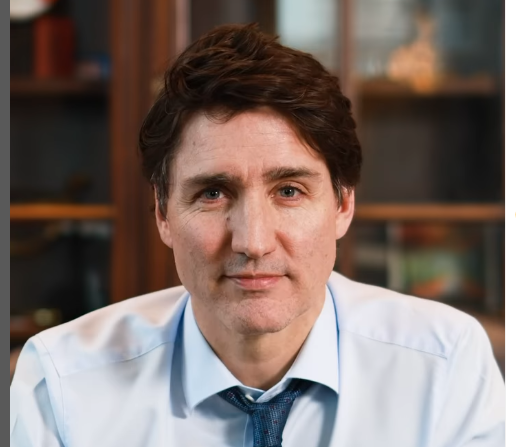The multifaceted nature of Justin Trudeau’s financial trajectory—combined with his inherited legacy, public leadership, and audacious investments that completely changed his financial foundation—makes it especially noteworthy. Trudeau is expected to have a fortune of approximately $96 million by 2025, which is far more than the combined net worth of almost all of his Canadian political contemporaries and many world leaders. He was born into a family that is well-known in Canadian politics, and his father, Pierre Trudeau, left him more than $40 million. But what has garnered more attention is the way he has actively managed and grown that inheritance.

Trudeau made significant investments in the equity and real estate markets through legal trust arrangements and strategic alliances. Luxury homes in Montreal, Vancouver, and Ottawa are part of his portfolio. One of these is an 11-bedroom estate in the nation’s capital that has custom interiors, curated artwork, and top-notch security. Furthermore, the Bahamas’ discreet holdings show a trend of acquiring a variety of real estate with the goal of prestige and appreciation. Trudeau positioned his assets for extraordinary longevity and compounded value by using these properties as leverage for both personal use and as part of larger financial planning.
Justin Trudeau Biography and Net Worth Overview
| Category | Detail |
|---|---|
| Full Name | Justin Pierre James Trudeau |
| Date of Birth | December 25, 1971 |
| Nationality | Canadian |
| Occupation | Former Prime Minister, Politician, Public Speaker |
| Political Career | MP for Papineau since 2008, PM from 2015 to January 2025 |
| Estimated Net Worth | $96 million (2025) |
| Key Wealth Sources | Inheritance, Government Salary, Speaking Fees, Investments, Real Estate |
| Known Properties | Ottawa Mansion, Multiple Canadian Holdings, Caribbean Assets |
| High-Profile Moments | Katy Perry Outing, Climate Advocacy, Cannabis Legalization |
| Reference Site |
Trudeau complied with Canadian regulations while taking advantage of market trends by assigning active trading to financial trustees while he was in office. His stock holdings, which are organized in blind trusts, have grown at an average annual rate of 48% to an estimated $20 million. The strategies of Silicon Valley investors who diversified early into high-growth industries are reflected in that performance, which was noticeably enhanced by wagers on clean tech, artificial intelligence, and healthcare stocks. Trudeau stands out not just because of the size of his portfolio but also because it is in line with the political causes he supported, such as education, innovation, and climate change.
Speculation regarding Trudeau’s public rebranding has increased in recent months after he had a high-profile dinner with pop star Katy Perry. Analysts viewed the move as a transition signal, akin to Barack Obama’s transformation from statesman to cultural icon and entrepreneur, while tabloids seized on the celebrity angle. To further cement his move into high-value media territory, Trudeau is anticipated to sign a $8 million publishing deal for his second memoir by the beginning of 2026.
Speaking engagements that reportedly pay up to $250,000 per appearance already supplement his post-political income. These gatherings, which are frequently organized by international organizations, universities, and climate coalitions, have both financial and reputational goals. By combining strategic visibility with thought leadership, Trudeau has established a feedback loop that boosts his personal brand and diversifies his sources of income.
Due to his astute asset acquisition and extraordinarily successful wealth management, Trudeau’s way of life has come to represent expensive luxury. Two Rolls Royces, three Mercedes-Benz cars, a Bugatti, two McLarens, and private yachts anchored in the Caribbean and British Columbia are all part of his fleet. Beyond comfort, these objects serve as symbols of soft power in his post-leadership narrative. They provide venues for fundraising, draw well-known guests, and quietly bolster his standing in affluent political and business circles.
Trudeau’s expenditures, however, go beyond personal indulgences. He has covertly supported educational programs for Indigenous youth in recent years, with a special emphasis on increasing access to technology and digital literacy in marginalized northern communities. This philanthropic approach is especially creative since it blends long-term visibility with social equity. These initiatives frequently win over the public and media, fostering emotional equity that results in future invitations, partnerships, and collaborations with non-governmental organizations and multilateral organizations.
Financial figures like Mark Carney, whose own net worth of $6.97 million is impressive by traditional standards, seem modest in comparison to Trudeau’s scale. Trudeau’s combination of inherited, earned, and invested wealth is uncommon even among other well-known Canadians in the public sector and finance. It’s possible that Carney will have new opportunities in the future, particularly if he gets more involved in politics. Trudeau’s lead now, however, is indisputable and much greater.
Trudeau’s wealth is not merely a dormant figure; despite his privilege and access, it is an active asset. He is still pursuing environmental storytelling endeavors, such as preliminary discussions for a Netflix-style documentary on climate leadership. The change is entirely consistent with his previous policies and may provide a particularly advantageous synergy between monetization, influence, and message.
For someone who had early access to both elite networks and political influence, his trajectory also demonstrates a surprisingly low cost of entry into high-return endeavors. Trudeau’s model provides insight into how legacy wealth can transform into something far more dynamic when managed with ambition and intelligence, even though the typical Canadian investor would struggle to match his returns.
Trudeau is establishing a second act that could surpass his time as prime minister through calculated withdrawals, well-timed endorsements, and more noticeable media appearances. Trudeau is paving the way for a long runway, in contrast to many former leaders who fade quietly. His significance is increasing rather than decreasing, as evidenced by his possible appointments to the UN, fellowships at prestigious universities, and even a hypothetical position on international tech advisory boards.
In many respects, his net worth—which is close to $100 million—is a story as much as a gauge of wealth. It depicts a transition from public servant to private tycoon, from classroom instructor to owner of a lavish home, and from political figure to contemporary symbol. Instead of being unplanned or stagnant, Justin Trudeau’s financial success has been meticulously planned—modified over decades, crises, elections, and new industries.
